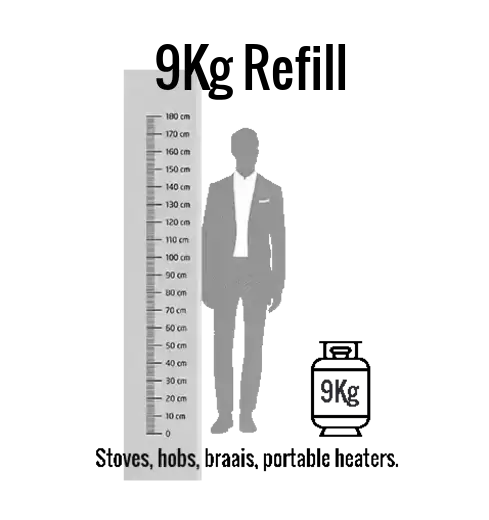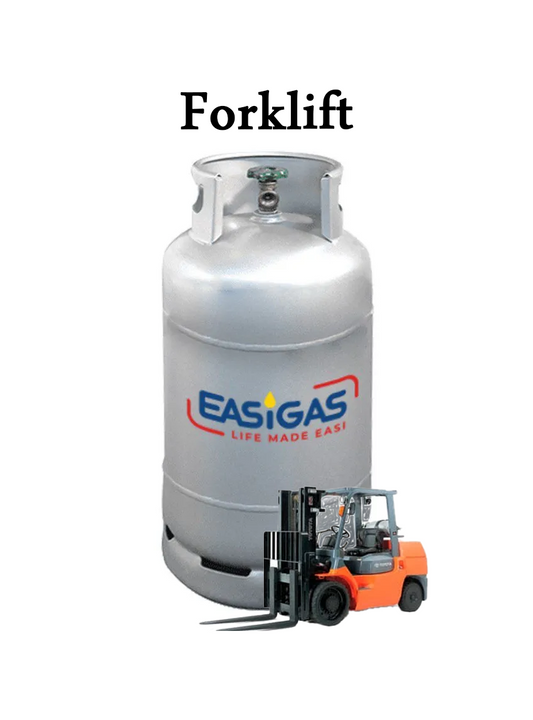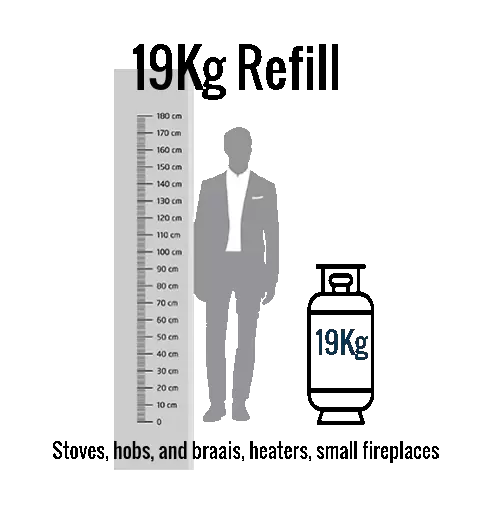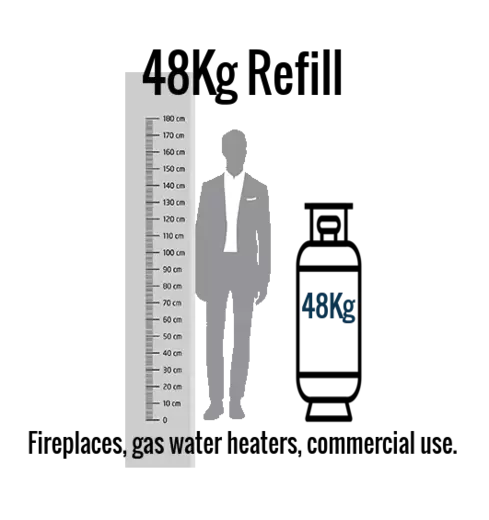The Risks and Red Flags of Illegal Rogue Gas Cylinder Refills
Share
The Risks of Unauthorized Gas Fillers
Rogue, or illegal, fillers are individuals or businesses that engage in unauthorized gas cylinder filling, often with perilous consequences. Their operations typically revolve around cost-cutting measures, such as the illicit addition of substances like jet fuel and other cheap liquids. We call this 'DIRTY GAS' This practice not only poses significant risks but also leads to damages to regulators, appliances, and all rubber components.
At first glance, it may appear as though you're getting a fantastic deal, but in reality, you're not. Dirty gas can burn at an accelerated rate, resulting in a less efficiency and a more costly experience.
How to Spot Rogue Fillers
To stay safe, look for signs of rogue fillers:
- Different cylinder colors each time.
- Seals on the valve that don't match the cylinder brand or look suspicious.
- Very low prices.
- Little paperwork or a preference for hiding their activities.
Legal cylinders seals will always bear the brand name matching the cylinder and a distinctive serial number on the seal. Illegal fillers typically employ seals that lack matching cylinder brand and serial numbers; instead, they often display a generic label, such as 'LP Gas'.


Getting a Deal?
At first, using rogue fillers might seem like a way to save money and you getting a fantastic deal! but in reality, you're not. Dirty gas can burn at an accelerated rate, resulting in a less efficiency and a more costly experience. Rogue fillers don't take responsibility if something goes wrong, and they don't take responsibility for any damages.
Common Issues and Hidden Dangers
Beyond the lower prices associated with rogue fillers, a multitude of hidden dangers lurk beneath the surface. They frequently bulk up the gas by incorporating cheaper substances, creating a host of problems:
-
Damage to Regulators: The introduction of improper substances can wreak havoc on gas regulators, rendering them ineffective or worse. This damage may include harm to the internal rubber components and can even cause the regulator to flip over to high pressure, posing significant dangers that could extend to damaging appliances.
-
Harm to Appliances: Appliances connected to cylinders filled by rogue operators are at risk of malfunction or even destruction due to the altered gas composition.
-
Rubber Component Degradation: The presence of foreign substances in the gas mix can lead to the deterioration of rubber components, causing leaks and potentially hazardous situations to the line and appliance.
Tell Signs of Dirty Gas
Recognizing the signs of dirty gas is essential to maintaining a safe and efficient gas supply. Here are some indicators to be aware of:
-
Unusual Smell: One of the most apparent signs of dirty gas is a strong, unusual odor. Gas should typically be odorless, so any noticeable scent can indicate contamination.
-
Possible Yellow or Orange Flames: Clean natural gas burns with a blue flame. If you notice flames in your gas appliances that are yellow or orange, it could be a sign of added impurities in the gas. We commonly find a poisonous black soot buildup on pots and logs etc.
-
Possible Sooty Deposits: Dirty gas can lead to sooty deposits on the burners of your gas appliances. These black or dark brown residues can accumulate over time.
-
Fluctuating Flames: Inconsistent or flickering flames on gas appliances, such as stoves or water heaters, might be a sign of dirty gas affecting the combustion process.
-
Noisy Burners: If you hear unusual noises coming from the burners of your gas appliances, it could indicate issues with gas quality, leading to inefficient combustion.
-
Reduced Appliance Efficiency: Dirty gas can decrease the efficiency of your gas appliances, causing them to work less effectively and potentially costing you more.
-
Gas Pressure Problems: Fluctuations in gas pressure, including sudden drops or surges, can be indicative of gas impurities or contamination.
-
Corrosion and Rust: Over time, dirty gas can lead to corrosion or rust in the internal components of your gas appliances or in your gas piping system.
-
Health Issues: In extreme cases, exposure to contaminated gas can lead to health problems for occupants in a building, such as headaches, dizziness, or nausea.
-
Frequent Repairs: If you find yourself needing to repair your gas appliances more frequently than usual, it may be a result of the corrosive effects of dirty gas.
If you suspect that your gas supply is contaminated or you notice any of these signs, it's crucial to contact a qualified gas technician to investigate the issue promptly. Dirty gas can not only affect appliance performance but also pose safety hazards, so it should be addressed promptly and professionally. Your safety and the efficient operation of your gas appliances depend on it.
Understanding the Risks
Although the chances are low, the risks are big. If something goes wrong with a cylinder filled by a rogue filler, you might be held responsible until you can prove where it came from. It's like buying a stolen car; you may need to explain yourself in court.
Supporting Safety Efforts
The LPGSASA association is working hard to to stop the problem by shutting them down and always informing insurance companies about rogue fillers.
Choose Safety
Always buy your gas cylinders from an LPGSASA Member to keep yourself and your appliances safe.













